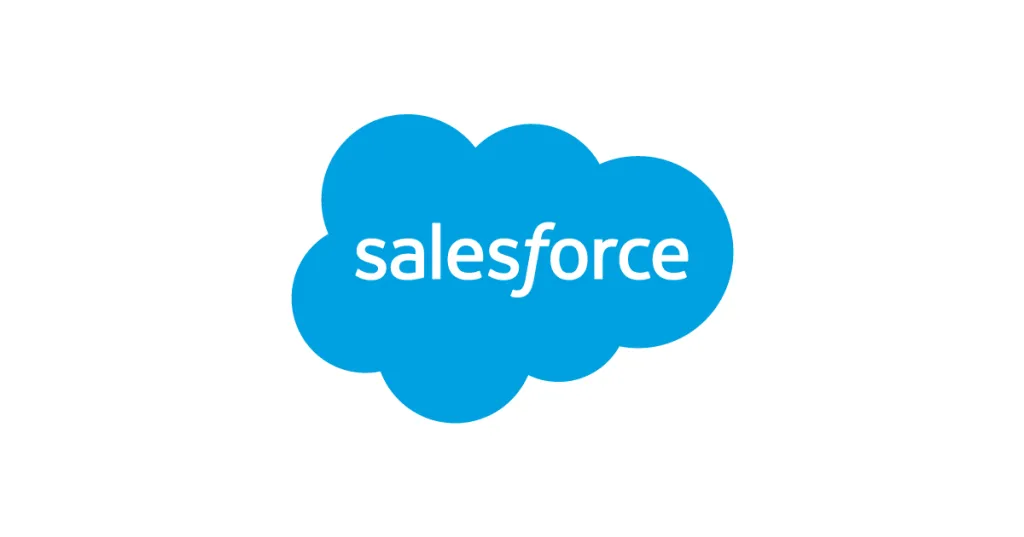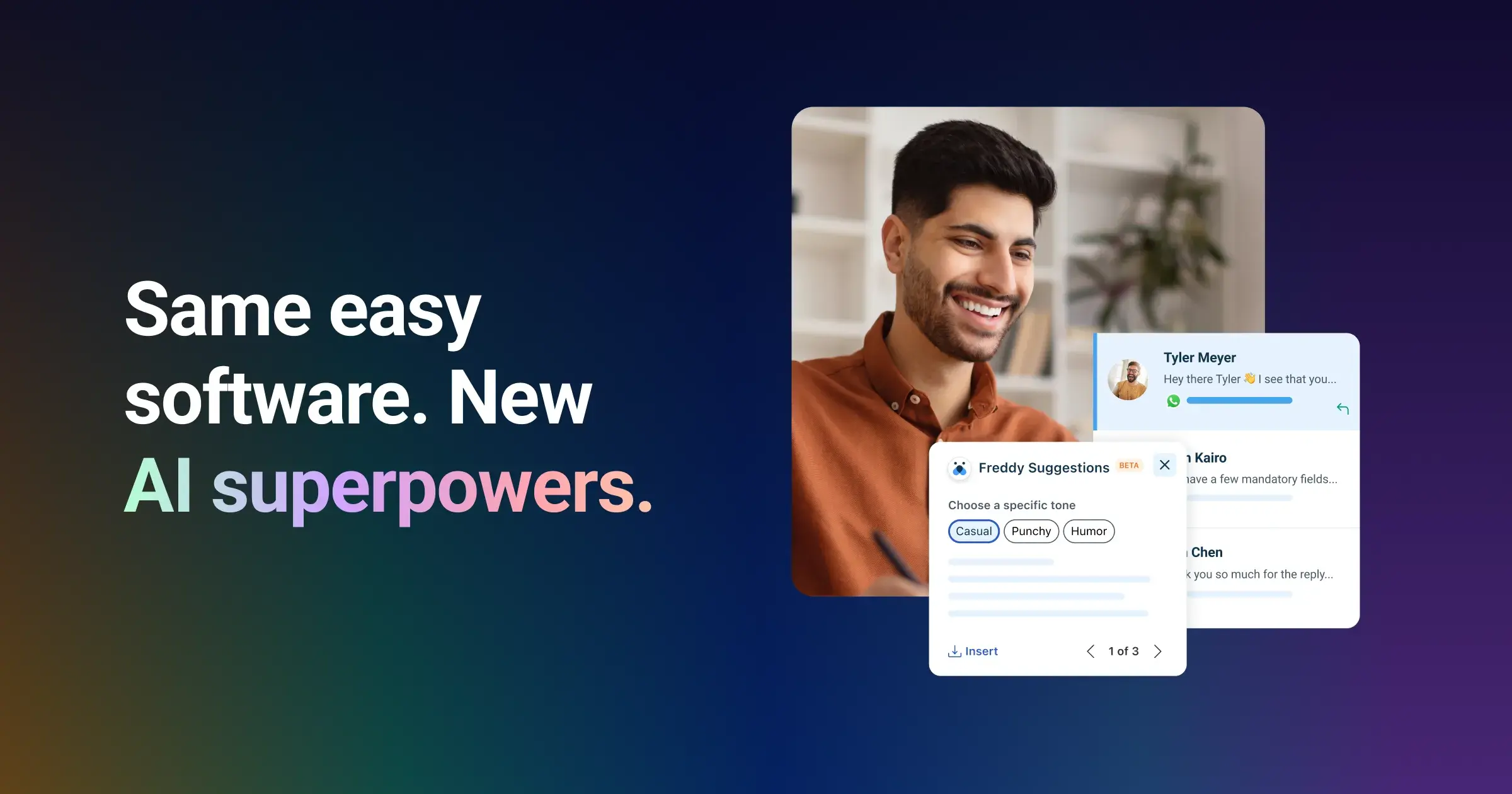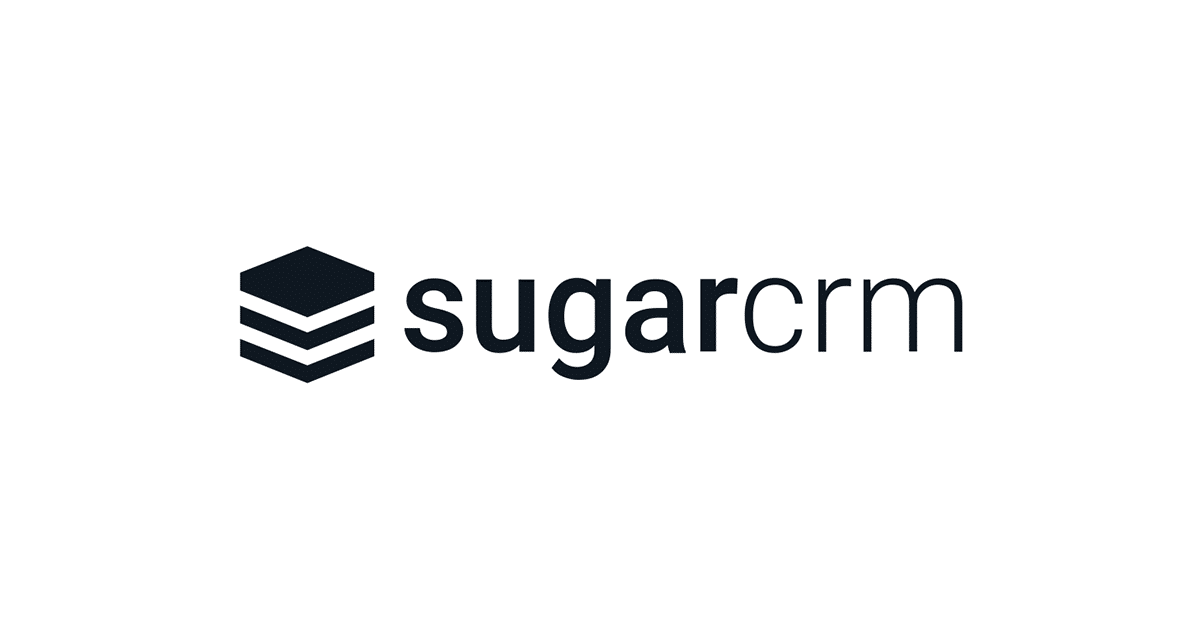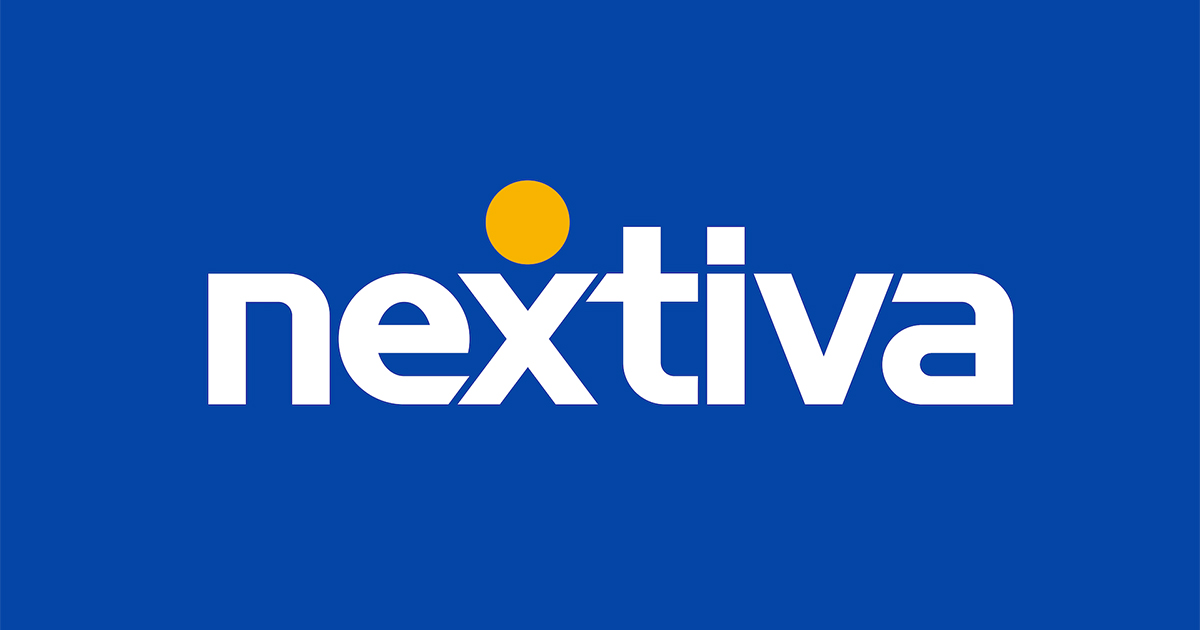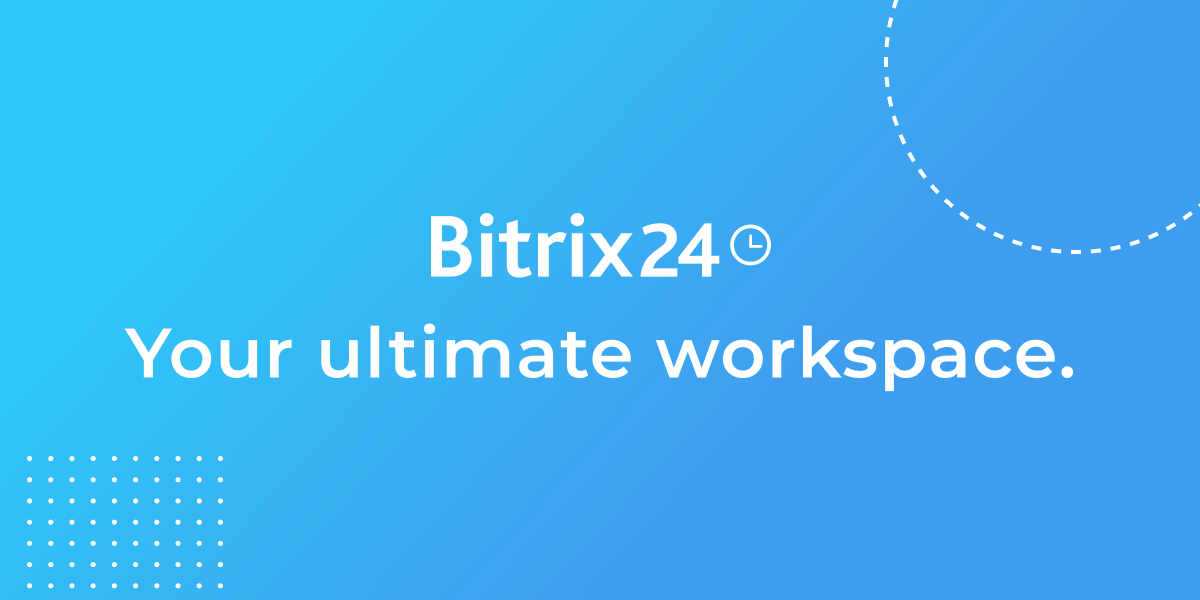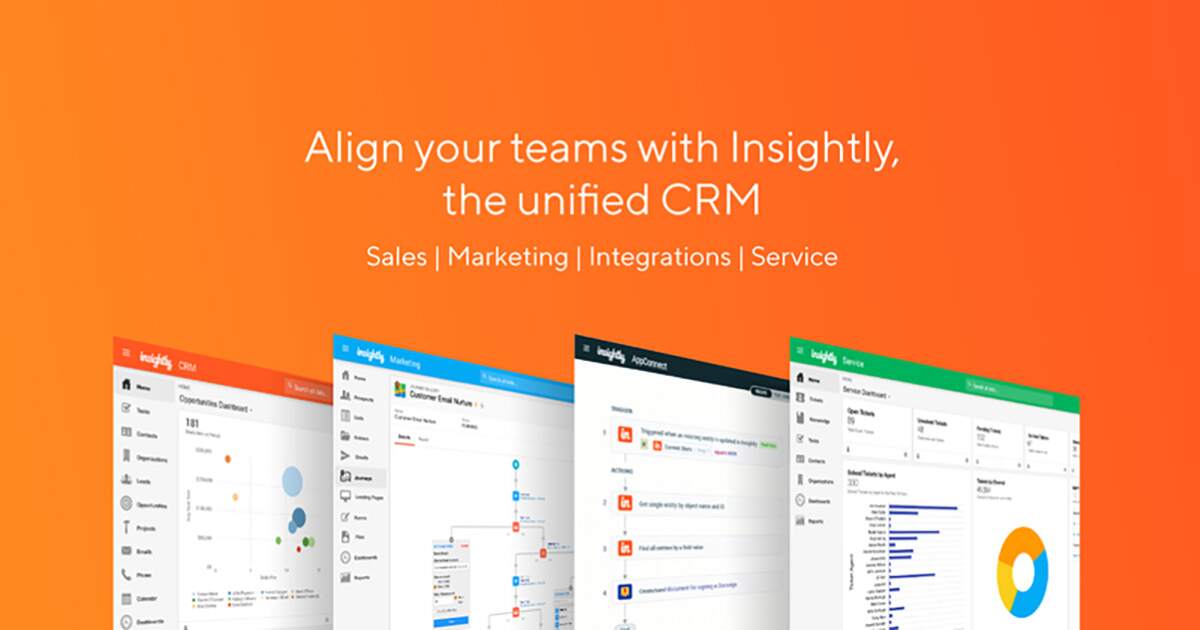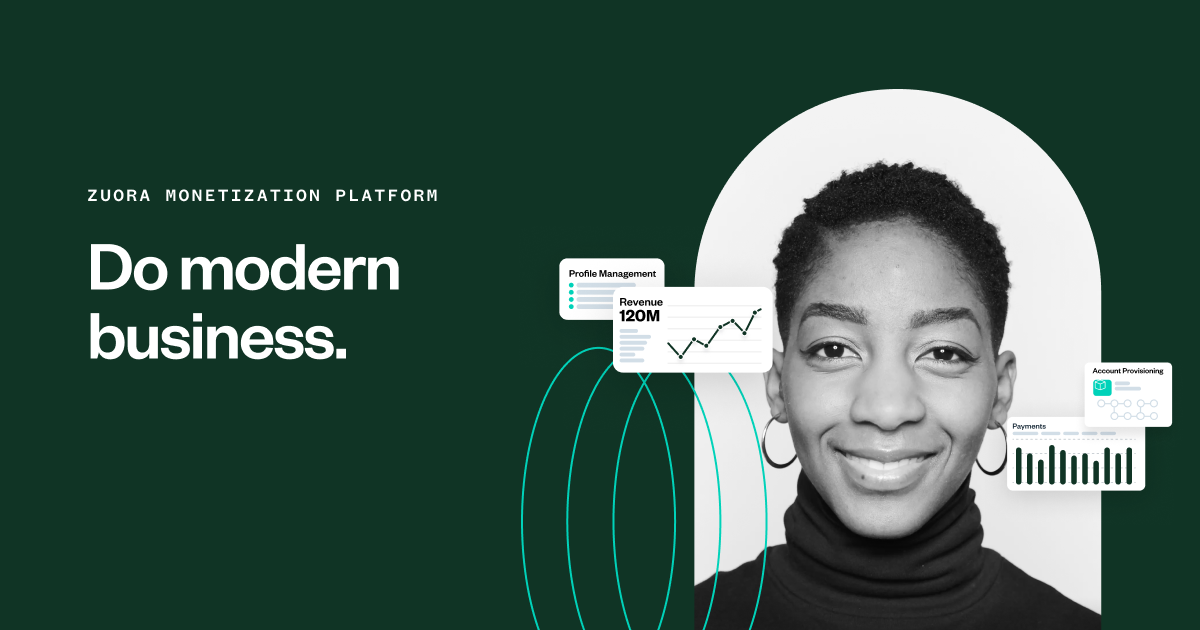Introduction
Choosing the right customer relationship management (CRM) software is crucial for financial services companies to manage leads, contacts and customers effectively. A robust CRM allows you to track interactions, automate workflows and gain insights from customer data. However, with many options available, it can be challenging to identify the software that meets your unique business needs. This guide evaluates 15 of the top CRM platforms based on key criteria to help you make an informed decision.
Methods of Evaluation
To evaluate and rank the CRM software, we considered several factors: features and functionality, pricing and plans, customer support, integrations, reviews and ratings. In addition, we gave weightage to the number of backlinks, website traffic and search volume trends for the keywords relevant to each company to understand their search engine authority and online presence.
1. Zendesk Sell
Zendesk Sell is a leading customer service and sales CRM software created by Zendesk. Zendesk is an award-winning company trusted by over 200,000 customers worldwide for its customer service and sales software solutions. Zendesk Sell combines helpdesk, ticketing and sales capabilities into one integrated platform.
Pros: Some key advantages of Zendesk Sell include:
– Leading helpdesk software with integrated sales capabilities
– Allows support and sales teams to work on the same customer account information and communication history
– Affordable pricing for small businesses and teams looking for an all-in-one solution
Cons: A potential disadvantage is that the more advanced sales features may not be as robust as dedicated sales CRM platforms for larger and more complex sales organizations.
Pricing: Zendesk Sell offers flexible pricing plans starting from $15 per agent per month for their Standard plan up to customized Enterprise plans for larger organizations. All plans include both support and sales capabilities.
Some key stats about Zendesk Sell include:
– Used by over 200,000 customers globally across various industries
– Available in over 30 languages
– Integrated support for over 40 third party tools and applications
– 99.99% uptime SLA
2. Salesforce
Salesforce is a leading CRM platform for managing relationships and interactions with customers and potential customers. Founded in 1999, it has become the largest customer relationship management software provider worldwide. Salesforce offers a comprehensive CRM platform to manage marketing, sales, service, and more through an intuitive interface.
Pros: Some key advantages of Salesforce include: One of the largest CRM platforms with a huge ecosystem of apps; Established industry solutions for banking, insurance, and wealth management; Customizable platform to scale with growing businesses;
Cons: A potential disadvantage is the high upfront and ongoing licensing costs compared to some competitors. Complex implementations may also require substantial time and resources from specialized implementation partners.
Pricing: Salesforce offers different pricing tiers and products for CRM needs. Some of the main pricing plans are: Essentials Edition starting at $25/user/month, Professional Edition starting at $75/user/month, Enterprise Edition starting at $150/user/month, Unlimited Edition starting at $300/user/month.
Some key stats about Salesforce include: it has over 150,000 customers, processes over 6 billion transactions per day, and has a market capitalization of over $160 billion as one of the largest software companies in the world. Over 13 million users rely on Salesforce for CRM needs across various industries.
3. SAP CRM
SAP CRM is a customer relationship management software developed by German software giant SAP. SAP CRM is aimed at large enterprises and offers an extensive set of features to manage marketing, sales, and customer service processes. Some key capabilities include sales force automation, marketing automation, customer service management, analytics and reporting.
Pros: Some key advantages of SAP CRM include:
– Feature-rich for large enterprises with complex business processes
– Tight integration with other SAP solutions for sales, marketing, commerce and more
– Highly customizable and flexible to meet unique business needs
Cons: High implementation and licensing costs compared to cheaper alternatives
Pricing: SAP CRM pricing depends on number of users, modules, customizations required etc.but typically starts from hundreds of thousands of dollars per year.
Some key stats about SAP CRM include:
– Used by over 15,000 companies globally across all major industries
– Supports over 100 languages
– Integrates with 30+ other SAP products
– Serves over 1 billion customers worldwide
4. UserVoice
UserVoice is a user feedback and product management platform that helps companies capture valuable insights from customers to optimize their products. Founded in 2008 and headquartered in San Francisco, UserVoice reaches over 150 million end users through its embedded feedback widgets. The platform centralizes customer feedback to give product teams a single source of truth for prioritizing features.
Pros: Some key advantages of UserVoice include:
– Intuitive feedback management interface for easily capturing and organizing customer insights
– Embeddable widgets allow capturing feedback directly on a company’s website or within their products
– Powerful analytics and dashboards help optimize the product based on customer needs and priorities
– Flexible pricing tiers with comprehensive feature sets suited for companies of all sizes
Cons: A potential disadvantage is that the platform may have a learning curve for some users getting used to the various feedback workflows and analytics.
Pricing: UserVoice offers three pricing tiers – Free, Pro (starting at $99/month), and Enterprise (custom pricing). The Pro and Enterprise tiers offer more advanced features like SAML SSO, custom branding, role-based access controls and larger data storage limits.
Some key stats about UserVoice include:
– Used by over 6,000 companies worldwide including Overstock, Yelp, and Cisco
– Processes over 1.5 million feedback items per month
– Integrations with various tools including Jira, GitHub, and Salesforce for feedback tracking
– Community of over 23,000 product managers using the platform
5. Freshworks
Freshworks CRM is a financial services CRM software created by Freshworks, an innovative software company based in California. Freshworks was founded in 2010 and has grown to serve over 50,000 customers worldwide. Their mission is to develop easy-to-use, modern software for growing businesses.
Pros: Some key advantages of Freshworks CRM for financial services include: – Intuitive interface designed for both sales and service teams. – Built-in connectivity to common banking systems for easy data sharing. – Strong pipeline management and forecasting tools to track revenue opportunities. – Customizable workflows to streamline processes specific to financial services.
Cons: One potential disadvantage is a lack of industry-specific features compared to CRM solutions focused exclusively on financial services. However, Freshworks offers extensive customization options to overcome this.
Pricing: Pricing for Freshworks CRM starts at $12 per user per month for the Professional plan, which includes basic features. For larger financial institutions, Enterprise plans with additional functionality start at $24 per user per month.
Some key stats about Freshworks CRM include: – Used by over 3,000 financial services companies globally. – Integrates with 30+ banking and investment platforms including Chase, Wells Fargo, Fidelity and Schwab. – Average customer handles 40% more cases per agent compared to other CRM solutions.
6. Marketo Engage
Marketo Engage is a leading marketing automation platform developed by Adobe. It provides organizations with comprehensive tools to manage every stage of the customer journey, from initial lead capture to converting prospects into customers and retaining existing clients. Some key capabilities include marketing campaign management, lead scoring and automation, and demand generation tools.
Pros: Some key advantages of Marketo Engage include:
– Comprehensive campaign management capabilities to create, execute and optimize omni-channel marketing programs
– Robust lead scoring and segmentation features to automatically route leads through customized journeys
– Best-in-class demand generation tools and templates for activities like account-based marketing
Cons: One potential disadvantage is that as a more full-featured platform, Marketo Engage may have a higher learning curve and implementation time compared to some simpler marketing automation alternatives.
Pricing: Pricing for Marketo Engage is based on annual recurring fees and varies based on the selected plan and number of users. There are four primary plans – Basic, Standard, Premier and Ultimate. Pricing starts from around $60 per named user per month for the Basic plan.
Some key stats about Marketo Engage include:
– Used by more than 4,500 customers globally across all industries
– Processes over 1 billion marketing interactions per month
– Has a 95% customer retention rate
– Integration with over 250 applications including CRM, email, and analytics tools
7. Pipedrive
Pipedrive is a sales CRM and pipeline management software that helps teams keep track of leads and close more deals. Founded in 2010, Pipedrive currently has over 95,000 customers worldwide ranging from small businesses to enterprises.
Pros: Some key advantages of Pipedrive include:
– Easy to use sales pipeline management
– Affordable pricing suitable for growing businesses
– Intuitive dashboard and customizable pipeline views
Cons: One potential disadvantage is that the free version has limited functionality compared to the paid tiers.
Pricing: Pipedrive offers three paid tiers – Essentials at $12/user/month, Professional at $18/user/month, and Enterprise starting at $25/user/month. All tiers include unlimited users and support.
Some key stats about Pipedrive include:
– Over 95,000 customers worldwide
– Used in over 150 countries
– Integrates with over 100 apps like Gmail, Slack, Dropbox
– Available in 25+ languages
8. SugarCRM
SugarCRM is a customer relationship management (CRM) software company founded in 2004 and headquartered in Sunnyvale, California. SugarCRM offers a highly customizable CRM platform suitable for organizations of all sizes. With dedicated modules for key industries like financial services, SugarCRM helps businesses streamline processes and create customer loyalty.
Pros: Some key advantages of the SugarCRM platform include:
– Highly customizable with flexible data model that allows customization without coding
– Enterprise-grade platform suitable for supporting large customer bases and teams
– Dedicated financial services modules and workflows to support lending, insurance and more
– Predictive analytics and AI capabilities to intelligently optimize workflows
Cons: A potential disadvantage is the limited free version which only supports up to 5 users. For larger teams, a paid subscription is required which can add to operating costs depending on team size and needed capabilities.
Pricing: SugarCRM offers several paid subscription tiers for businesses starting from $50/user per month. Pricing includes access to the full platform with unlimited customization, storage, support and more. Premium offerings and custom enterprise pricing are also available for larger organizations.
Some key stats about SugarCRM include:
– Used by over 4 million users worldwide
– Over 18,000+ customers including BMW, Coca Cola, Pinterest, Cisco
– Translated interface in over 30 languages
– Flexible data model supports custom fields, modules and workflows
9. Nextiva
Nextiva is a unified communications platform that provides customers with CRM tools, call routing features and advanced IVR capabilities. Founded in 2006, Nextiva is headquartered in Phoenix, Arizona and aims to simplify business communications and collaboration using one centralized tool.
Pros: Key advantages of Nextiva include:
– Unified communications platform with integrated CRM tools for managing contacts and leads
– Advanced call routing, IVR and artificial intelligence features to optimize phone support
– Wide range of integrations that allow the tool to connect with over 250+ popular third party apps
Cons: One potential disadvantage is the onboarding process may require more time and training for complex configurations and workflows.
Pricing: Nextiva offers several pricing tiers including:
– $25 per user per month for basic phone system features
– $35 per user per month for advanced features like CRM and contact center tools
– Custom enterprise plans also available for larger businesses
Some key stats about Nextiva include:
– Over 100,000 customers worldwide
– Features include phone system, chat, meetings, contact center and CRM tools
– Integrates with over 250+ apps including Microsoft Dynamics, Salesforce and Zoho
10. Bitrix24
Bitrix24 is an all-in-one free platform that helps manage teams and business processes. It integrated CRM, marketing automation, online meetings and video conferencing, project management, help desk and more to provide a complete suite for any small business needs.
Pros: Some key advantages of Bitrix24 include:
– All-in-one platform that combines CRM, marketing, project management and HR tools in one place
– Unlimited contacts and user accounts so it can grow with the business
– Highly customizable interface that can be tailored to any business workflow
– Integrations allow it to connect with other tools and apps
Cons: One potential disadvantage is that as a free platform, it has some limitations on storage space and features compared to paid versions. The user interface can also be complex which may require some training.
Pricing: Bitrix24 offers a free basic version as well as paid plans starting at $15/user per month. The paid plans unlock additional features, custom domains, more storage and support.
Some key stats about Bitrix24 include:
– Used by over 5 million users worldwide
– Available in 42 languages
– Integrates with over 100 apps through their marketplace
– Hosted in the cloud for easy access from any device
11. Act!
Act! is a full-featured CRM and marketing automation software developed by Sage. Since 1983, Act! has helped small businesses and entrepreneurs organize contacts, track communications, plan workflows, and run targeted marketing campaigns. With Act!, businesses can manage leads, track contacts across all communication channels, automate follow-ups and workflows, and gain insights to close more deals.
Pros: Some key advantages of Act! include:
– Easy to use interface focused on contact management
– Strong scheduling tools and calendaring features
– Affordable price point for smaller teams
– Full function CRM for basic contact management needs
Cons: A potential disadvantage is that Act! may not be robust enough for more advanced workflows or larger enterprise teams.
Pricing: Act! offers three pricing tiers:
– Act! Start: $15/user per month – ideal for solopreneurs and small teams
– Act! Grow: $25/user per month – adds marketing automation, dashboards, and reporting
– Act! Pro: $45/user per month – adds custom fields, custom object types, and more advanced features
Some key stats about Act! include:
– Over 1 million users worldwide
– Over 30 years in business
– Supported on desktop and mobile apps
– Integrates with over 200 apps like Gmail, Outlook, Dropbox, and QuickBooks
– Pricing starts at $15/user per month
Act!Act! provides CRM and marketing automation all in one so you can market like a pro, turn leads into sales, and win raving fans for life.act.com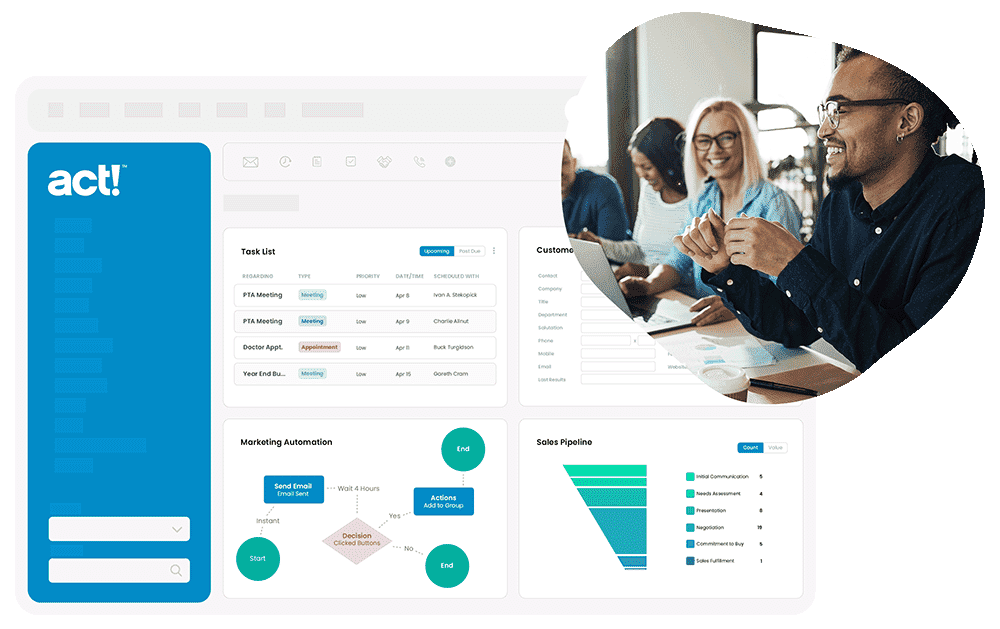
12. Insightly
Insightly is a financial services CRM software developed by Insightly. Founded in 2005, Insightly is headquartered in San Francisco, California and offers an affordable CRM platform suitable for growing businesses. Some key facts about Insightly include that it has over 25,000 customers globally and integrates with over 500 apps.
Pros: Some of the key advantages of using Insightly as a financial services CRM include:
– Affordable pricing making it suitable for growing small and medium sized businesses
– Wide range of integrations allowing data to be easily synced across different tools and workflows
– Simple and easy to use interface that allows even non-technical users to quickly get up and running
Cons: One potential disadvantage of Insightly is that it has more limited capabilities compared to more expensive enterprise-grade CRM software. For very large and complex organizations, it may not offer all the advanced functionality required.
Pricing: Insightly offers transparent monthly pricing plans starting from $25 per user for the Basic plan up to $150 per user for the Enterprise plan. It also offers various discounts for annual plans. There is a free trial available to explore all the features before committing to a paid subscription.
Insightly offers a simple yet powerful CRM platform with the following key features and stats:
– Affordable pricing starting from $25/user per month
– Over 500 integrations with popular 3rd party apps like Slack, Dropbox, and Gmail
– Available on all major platforms including web, iOS, and Android
– Simple and intuitive user interface that does not require technical expertise
13. Zuora
Zuora is a leading financial services CRM software that provides subscription and monetization solutions for businesses. Founded in 2007, Zuora is headquartered in California and helps companies transition to subscription-based business models. The platform provides comprehensive quoting, billing, invoicing and payment capabilities built specifically for recurring revenue streams.
Pros: The key advantages of Zuora include: – Specialized platform for billing and payments management tailored for subscription businesses. – Integrated pricing, quoting and invoicing tools to easily manage the contract lifecycle. – Flexible deployment options allowing on-premise, private cloud or public cloud deployment to meet business needs.
Cons: A potential disadvantage is that the platform is geared specifically towards subscription-based business models which may not suit companies with different revenue streams.
Pricing: Zuora offers various pricing plans depending on business needs. Standard pricing starts from $1500/month for up to 10 users. Plans with additional features like support and AWS hosting start from $2500/month. Enterprise pricing is available based on transaction volume and custom requirements.
Some key stats about Zuora include: – Over 1,000 customers worldwide across industries like software, media, manufacturing and more. – Processes over $100 billion in transactions annually for customers. – Integrates with over 200 applications including Salesforce, Microsoft Dynamics and SAP.
14. Creatio
Creatio is a no-code platform for building custom CRM applications and automating workflows without writing code. Founded in 2004, Creatio is a global vendor with offices in Europe and North America. Their low-code platform allows both technical and non-technical users to build automated workflows and CRM solutions rapidly.
Pros: Some key advantages of the Creatio platform include its low-code nature which allows for fast development without coding, its robust workflow and process automation capabilities, and its complete flexibility over the data model which can be customized as needed.
Cons: As an entirely no-code platform, advanced custom coding and development is not possible which may limit functionality for some very complex needs. Integration with other systems also relies on the out of the box connectors.
Pricing: Creatio offers several pricing plans including an free trial. Main paid plans are priced starting at $125/user per month for the standard plan and increasing for premium versions which include more capabilities and support.
Some key stats about Creatio include: used by over 4,000 customers worldwide, supports over 24 languages, over 200 native connectors for third party apps and databases, and processes over 1 billion records annually.
15. Streak
Streak is a Gmail-based CRM that allows users to manage contacts, deals, tasks and more directly within Gmail. Founded in 2013, Streak has aimed to provide a simple and integrated CRM experience for both freelancers and growing businesses. With Streak, there is no learning curve as it utilizes the familiar Gmail interface that users already know.
Pros: Key advantages of Streak include:
– Gmail-based interface makes it intuitive to use
– Tight Google Calendar and Contacts integrations
– Affordable pricing especially for freelancers and solopreneurs
– User role customizations enable access controls
– Support for Zapier webhooks and API integrations
Cons: One potential disadvantage is that being Gmail-based means some advanced CRM functionality is lacking compared to dedicated CRM platforms.
Pricing: Streak offers three core pricing tiers:
– Basic: $12/user per month
– Professional: $20/user per month
– Business: $36/user per month
Some key stats about Streak include:
– Used by over 150,000 teams globally
– Integrates contacts, files, calendar and more into Gmail
– Starts from $12/user per month for the Basic plan
Conclusion
Choosing the right CRM is a strategic decision that requires understanding your current and future requirements. Consider criteria like pricing, capabilities, customization, and ecosystem while shortlisting options. Read reviews from existing users in your industry for insights. Request demos from top contenders to explore features in detail. With the diversity of solutions available today, finding the software that best fits your financial services business needs is very possible.





